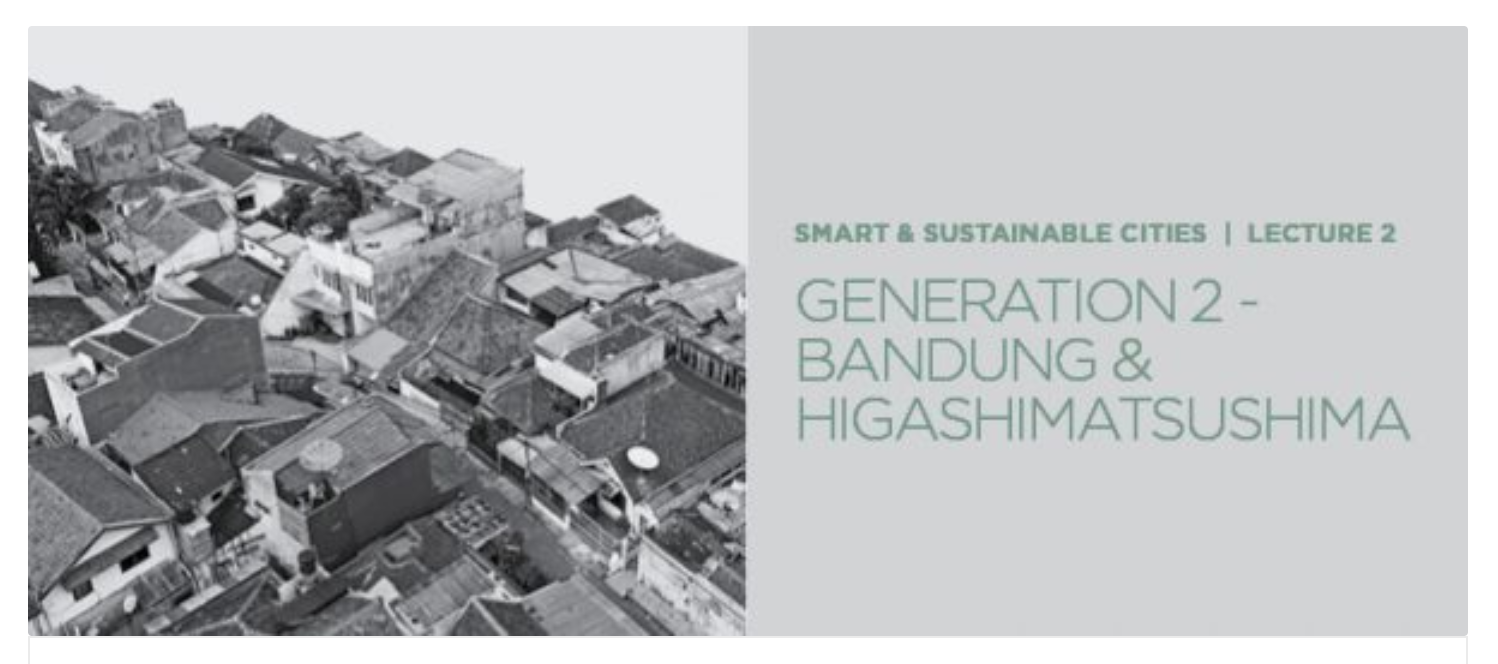Smart and sustainable cities: lecture 2

When one thinks of what a Smart City is, the natural inclination would be to a Utopian (or dystopian) vision — largely based on technology — specifically Information and Communication Technology (ICT) and the Internet of Things (IoT). It imagines a future where lives are made easier and more productive — thanks to technology. However, it is easy to overlook the important roles governance, culture and community play in enabling smart practices to take place. Furthermore, as the needs of the city dwellers around the world vary, so too do definitions of what makes a Smart City.
In this three part lecture series, we consider three generations of Smart City case studies from around the world — investigating their unique characteristics and key smart innovations and design principles, and ultimately ask whether such environments really enhance our daily lives. In Lecture 2 of the series, we investigate Second Generation Smart Cities, Higashimatsushima in Japan and Bandu in Indonesia.
To view the video, please visit pomeroyacademy.sg/course/smart-and-sustainable-cities-lecture-2/. Watch the first and third parts here
Recommended
Why everyone is moving to Selangor and Johor: Malaysia’s real estate comeback
Malaysia’s upturn in fortunes is especially prevalent in secondary destinations such as Selangor and Johor
Penang’s silicon boom: How the US-China tech war is supercharging local real estate
Penang’s booming semiconductor industry has created ripples within the local real estate sector
New leader, new opportunities: How Hun Manet is shaking up Cambodia’s real estate game
Hun Manet is overseeing decent economic growth and widening access to the country’s real estate market for foreigners
Singapore embraces inclusive housing reforms amid resilient demand
The Lion City’s regulatory strength continues to exert appeal for international investors








